Jumping Into the Texas Equestrian Team Experience
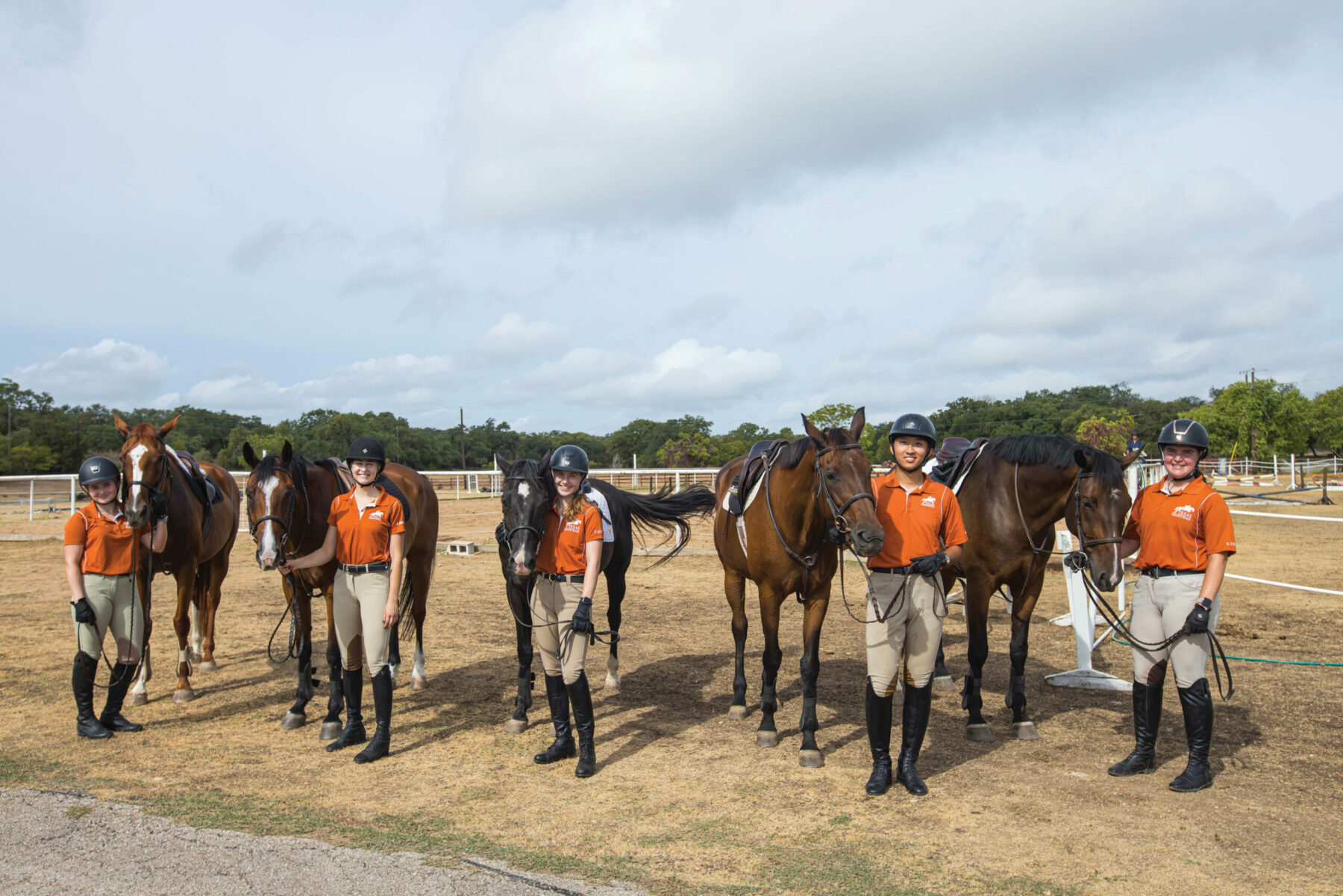
Without the Texas Equestrian Team, Bella Thayer would be left without an outlet in college to pursue her passion for horses and Michael Chan would never have known the joys of riding.
Luckily, the University of Texas has a Texas Equestrian Team, which competes in the Intercollegiate Horse Show Association (IHSA) throughout the academic year. This coed team competes only in the English hunter/jumper division, both on the flat and over fences.
The team meets and practices in Wimberley at Bel Canto Farms, which is owned by Suzanne Warmack, the Texas Equestrian Team head coach. Warmack stepped into the position in September of 2021 after the previous coach moved away. Since then, she’s been able to provide not only a home base and horses for the team but also leadership and friendship.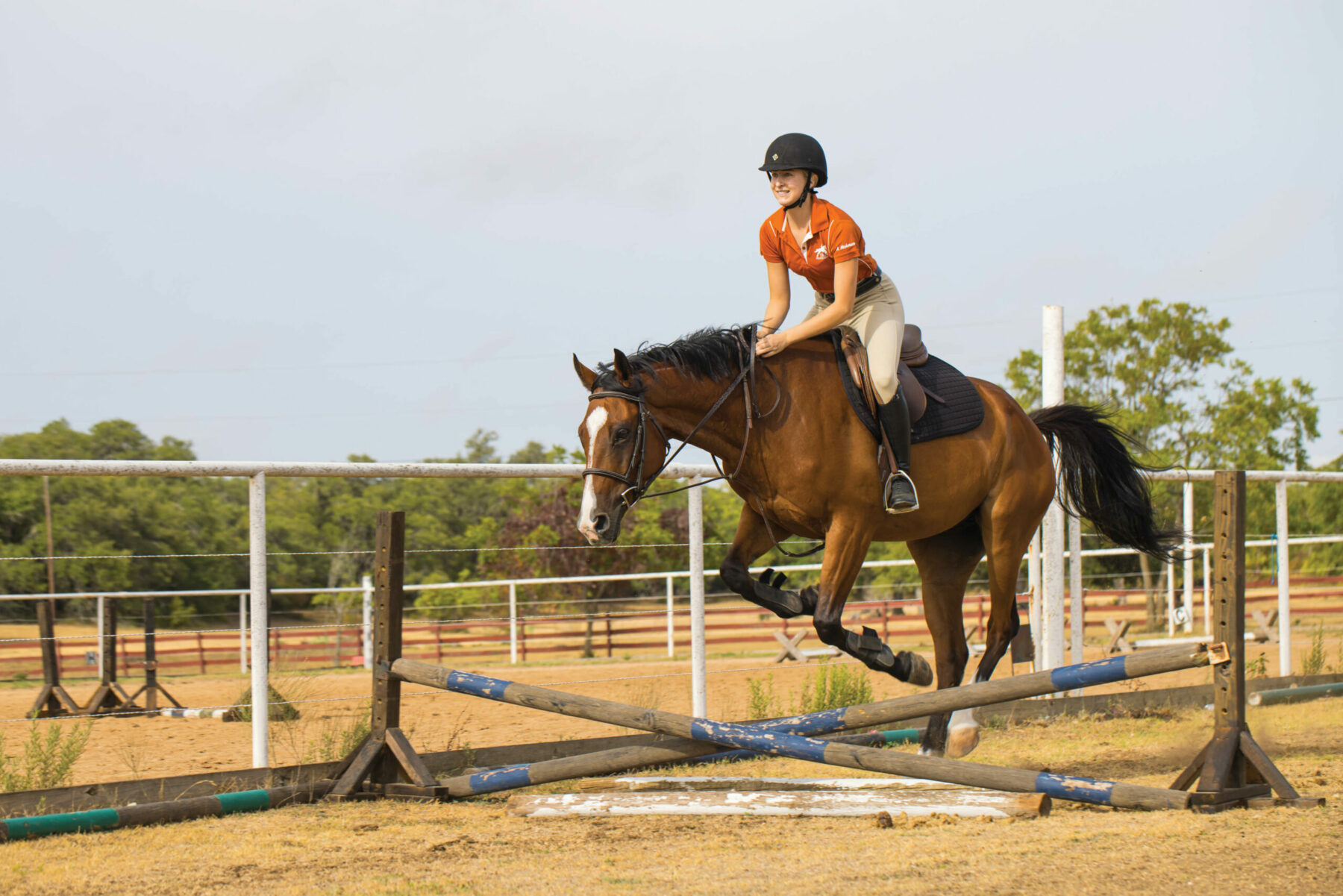
“The best part of the team is the relationships we’re building,” Warmack says. “These kids are great, and I’ve enjoyed getting to know them and helping them at whatever level they need. But aside from being a coach, I feel like I’m an adult friend; I try to at least give some friendly advice or be a good ear for them.”
Warmack, who was raised in Chicago, first became interested in horses at a young age. Her family raced horses, enabling Warmack to visit the track as a toddler, and she eventually started riding lessons at age 4.
“I was fascinated (by horses) from the time I was tiny,” Warmack says. “At the race track, I was pointing at horses the whole time, wanting to be down by the track instead of sitting in the owner’s box.”
She started Bel Canto Farms in 2005, eventually moving out to her Wimberley property in 2011. Today, along with being the coach of the Texas Equestrian Team, she is also involved in the Interscholastic Equestrian Association as well as the Texas Hunter Jumper Association.
Similar to Warmack, Thayer also grew up with a yearning for the sport. Even though her family didn’t have connections to horses, Thayer always asked for horse toys and finally sat on a horse at age 3. About five years later, she started riding lessons and has been hooked since.
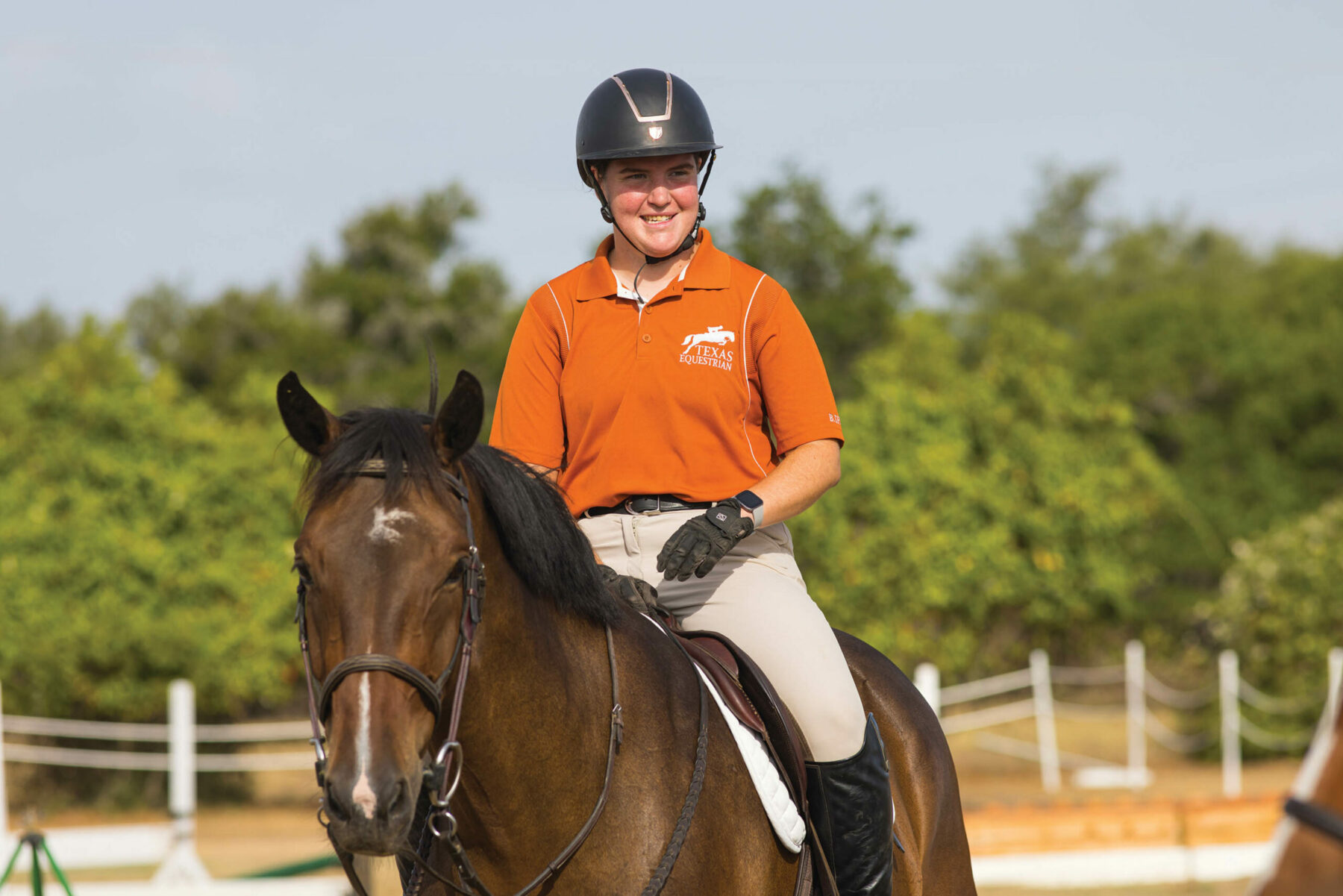
“When you get on a horse, everything else that’s happening in your life, you can’t think about,” Thayer says. “No matter how much homework or other stuff you have going on, you get time to just think about nothing else but what you’re doing at the moment.”
As an arts and entertainment technology senior at the University of Texas at Austin, Thayer originally planned her college decision around whether or not the university had an IHSA team. By the time she started at UT, she was ready to join the Texas Equestrian Team.
“If we didn’t have a team, there is no way I’d be able to ride in college, both from a money factor and also a time thing of finding someone who’s willing to schedule around school,” Thayer says.
In a similar way, international relations and global studies sophomore Chan also wouldn’t have much opportunity to ride if this team didn’t exist. However, when Chan joined the team, he was completely new to the equestrian sport. After watching the movie “War Horse,” he knew he wanted to start riding horses.
Chan started attending UT in the fall of 2021 and joined the Longhorn Band where he met Thayer, who eventually connected him to the equestrian team. His past experience with the equestrian sport was slim to none, so he started training from scratch. In China, where he grew up, there were few opportunities to ride horses. But here, he was able to jump into something new.
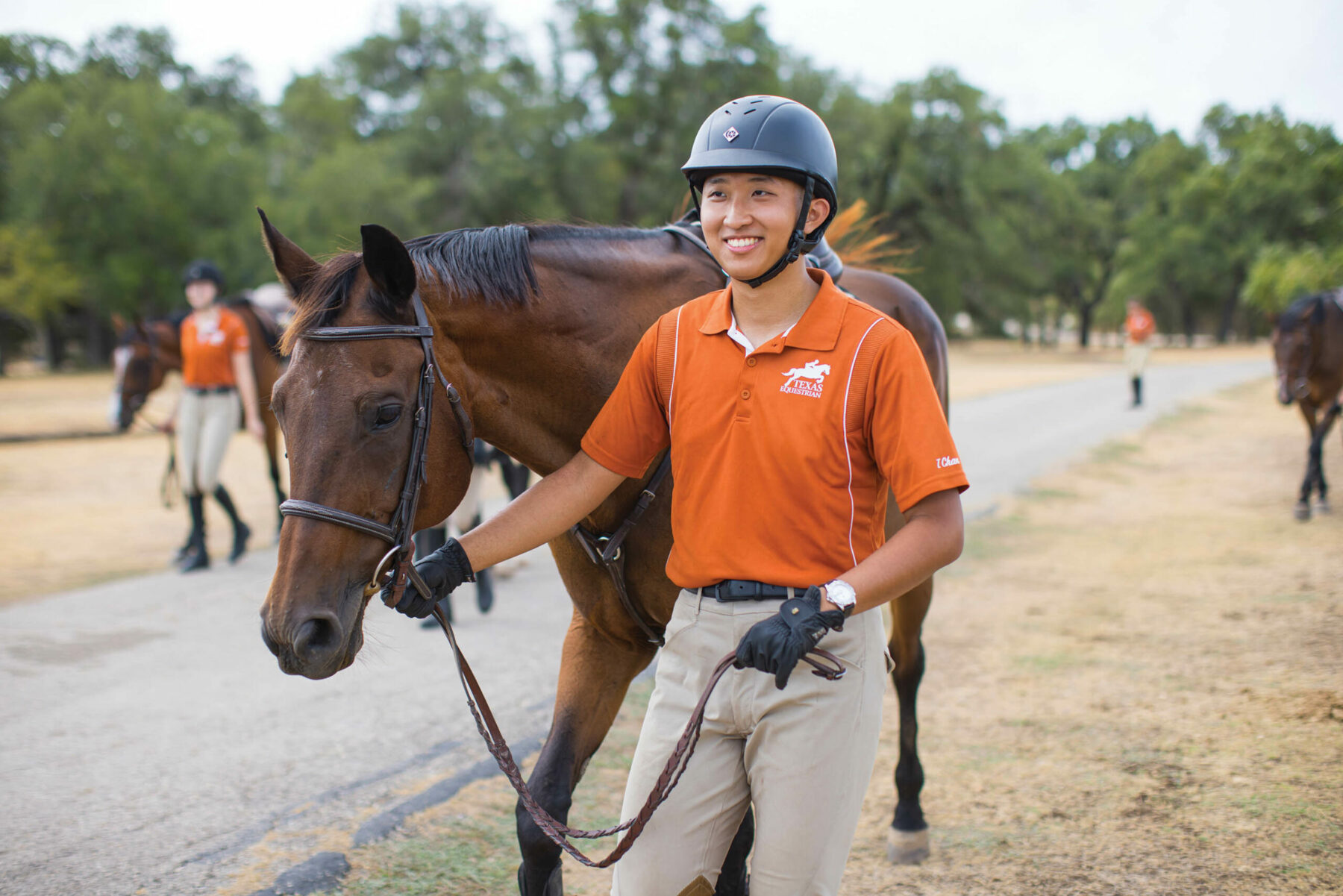
“I spent the first semester on the team overcoming my fear,” Chan says. “Fear is the most challenging part about equestrian and once you overcome that part, the rest is pretty easy. You just have to know where you’re limited.”
The Texas Equestrian Team opens applications to join during the fall and spring semesters. Interested applicants have the opportunity to attend informational sessions before applying to the team, and admittance isn’t based on past experience. After joining the team, riders are matched with a horse based on their height and weight proportions as well as their skill and goals for growth. Many riders don’t end up staying with the same horse, providing the opportunity to train with other horses at the farm to strengthen certain skills.
Warmack says during training and competition, a lot of communication occurs between the rider and the horse. As you grow in your relationship with the horse, you’re able to subtly communicate with your body what you want the horse to do.
Something Chan realized when he started riding was how intelligent and intuitive horses are. In communicating with the horse, a rider’s mentality greatly impacts the horse’s actions.
“(Horses) are herd animals,” Chan says. “They need a leader to tell them what to do, and in this case, a rider is the one in control.”
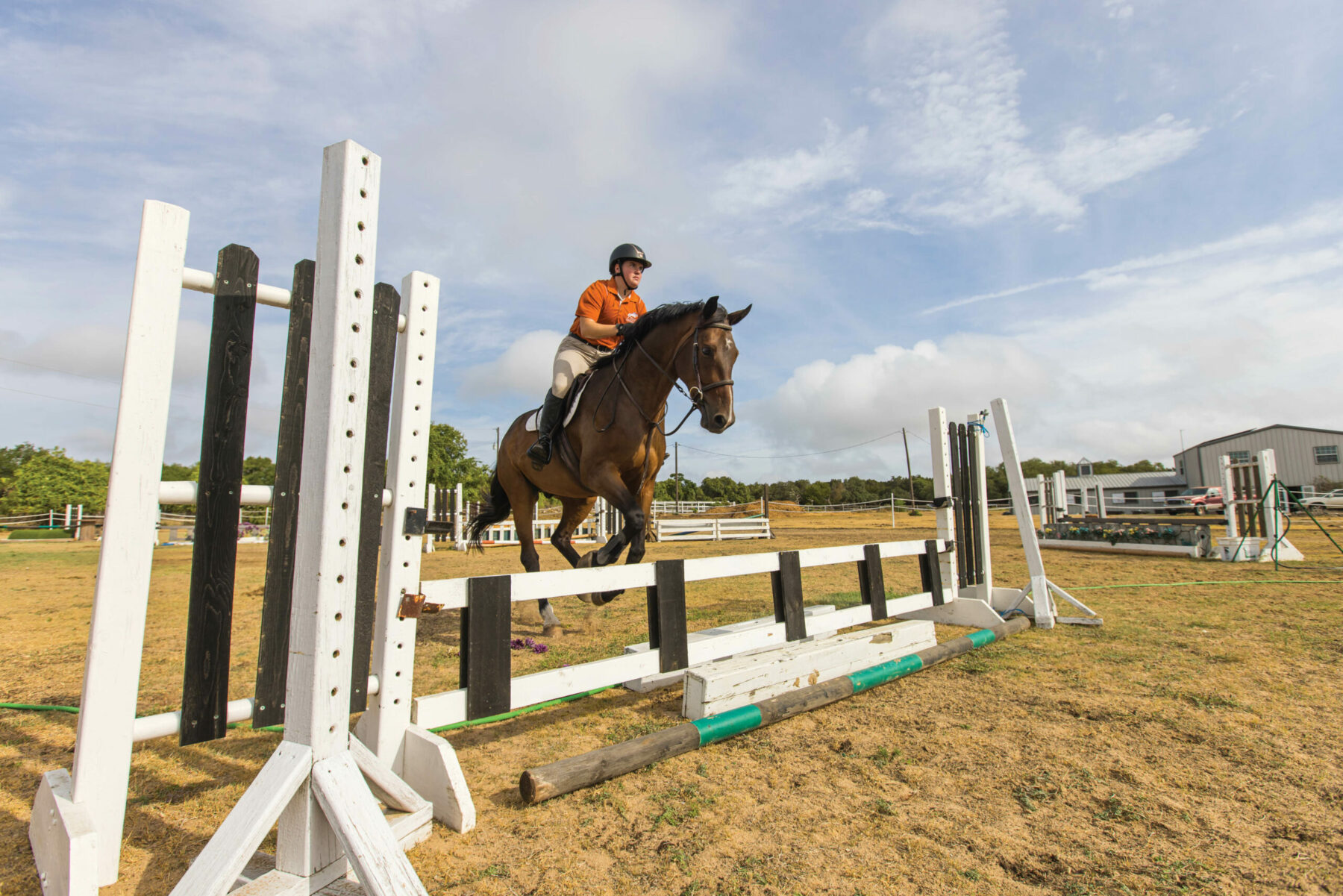
Horseback riding is not only a physical sport but a mental one, as riders must be focused on their actions; Thayer says horses can actually sense when a rider feels nervous.
Chan notes that in this partnership with the horse, the rider is constantly improving through sharpening their techniques.
“In this sport, (you) are your biggest enemy, not so much your competitors, teammate or horse,” Chan says. “(…) I feel like it’s a constant battle of defeating my own self, a process to constantly improve myself, not just physically but mentally.”
Riders on the team are required to train regularly throughout the semester. Beginners are encouraged to train at a minimum of one time a week while the more advanced riders train up to two times per week with the option of an additional hack ride (leisure ride) per week. During lessons, riders spend at least an hour and a half grooming, prepping and riding the horse, as well as partaking in aftercare.
Chan typically trains once or twice a week while Thayer tries to train about twice a week. However, in the summer, both have had the opportunity to train more often, especially without school or band practice going on. Training plays an important role in preparing riders for competition.
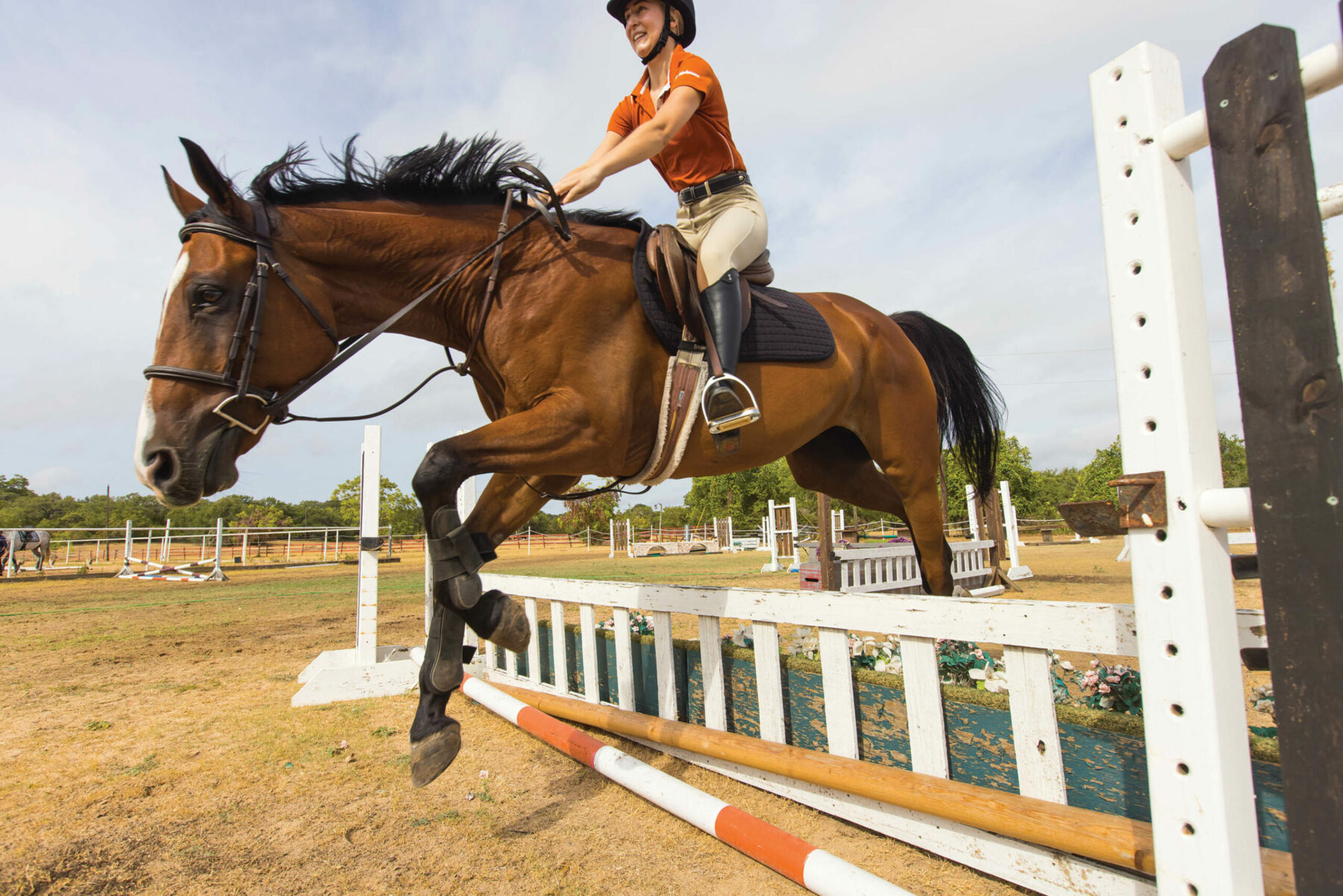
During a horse show, the team competes to earn both team and individual points for the day to determine the high-point team/rider as well as points to determine if the team will move to the next level. There are two main classes they compete in — jumping (in which they move throughout a course of fences) and flat work (in which they ride based on the judges’ direction). Each class has levels ranging from beginner to advanced, and teams need one rider to compete in each class to earn overall points.
In a single competition, there are six riders each paired with a horse, which they drew from a random pool of horses. Riders are then judged on their ability to ride and handle the horse, aka catch riding.
Since riders don’t have the opportunity to train with the horse beforehand, Thayer says they must draw from past experiences riding on similarly skilled horses from the farm. This is why it’s important for riders to not only have the physical capability of riding but also the ability to quickly problem-solve.
Chan admits that before joining the team, he thought the horses did most of the work. He eventually learned that much of the effort comes from the rider.
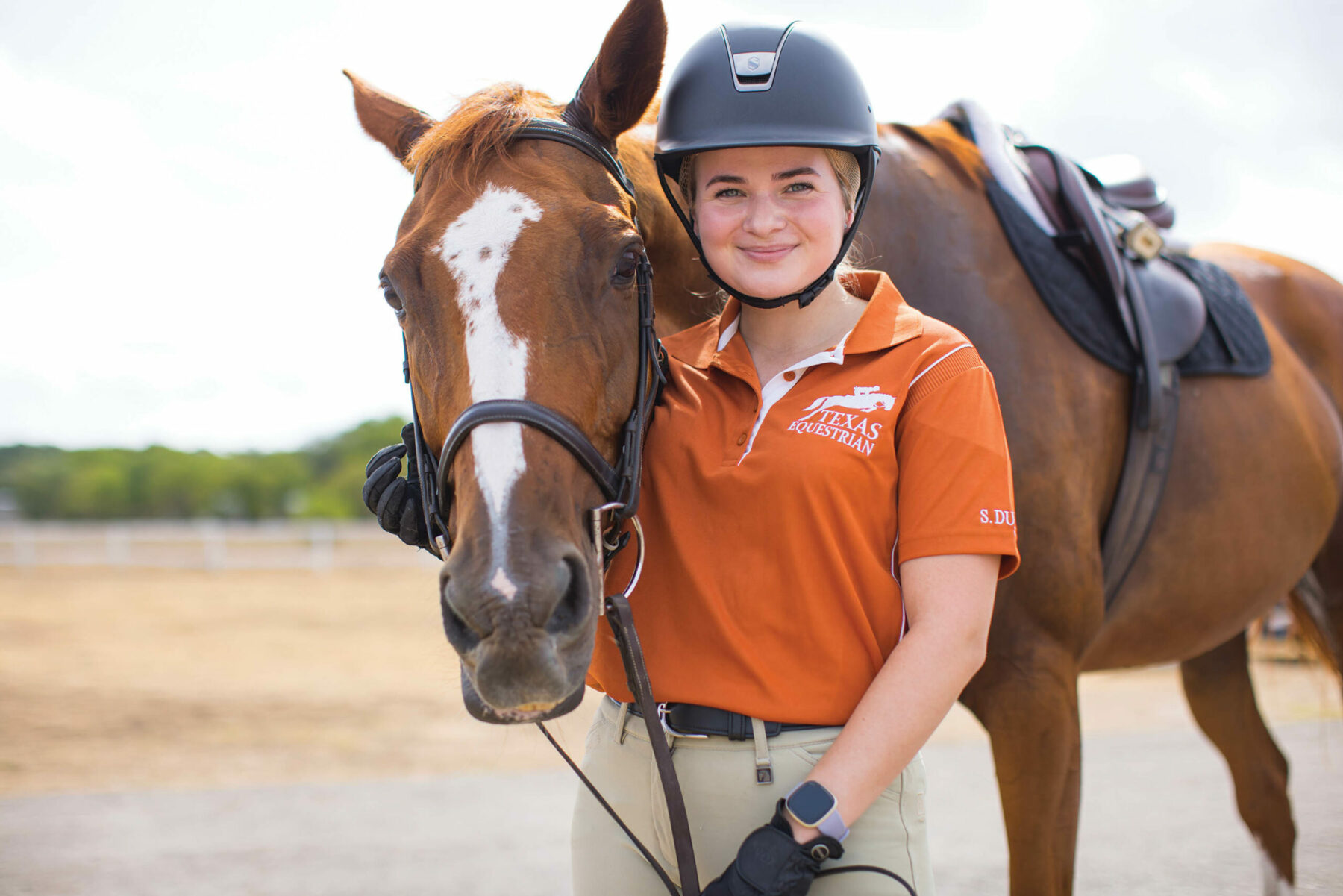
“Horses need a constant reminder to tell them what to do,” Chan says. “Otherwise, they’re not going to do it.”
For those new to riding, Warmack says people often expect to start jumping within their first ride. However, she cautions that it’s not as simple as you think.
“(Riders) make it look easy, but it’s not easy,” Warmack says. “It takes a lot of falling off to get to the point where it looks easy.”
However, one perk of starting riding from scratch is that you don’t come to the sport with expectations. Thayer says since she had past experience riding solo, it was difficult for her to transition into riding with a team.
“Coming from a world where I had my own horse and I was used to riding on my own and making my own decisions to then ride with a team was a little weird for me,” Thayer says. “(It) was going from picking what I want to do to (making decisions) for the purpose of the better of the team.”
Despite the challenges of transitioning into a team-centered mindset, Thayer says the equestrian sport and team have provided a constant in her life.
“I love that (riding) has been available for me at every point in my life,” Thayer says. “It’s always been there where I can just go to the barn at the end of a long week, put everything aside for an hour or two, and just think about what I’m doing.”
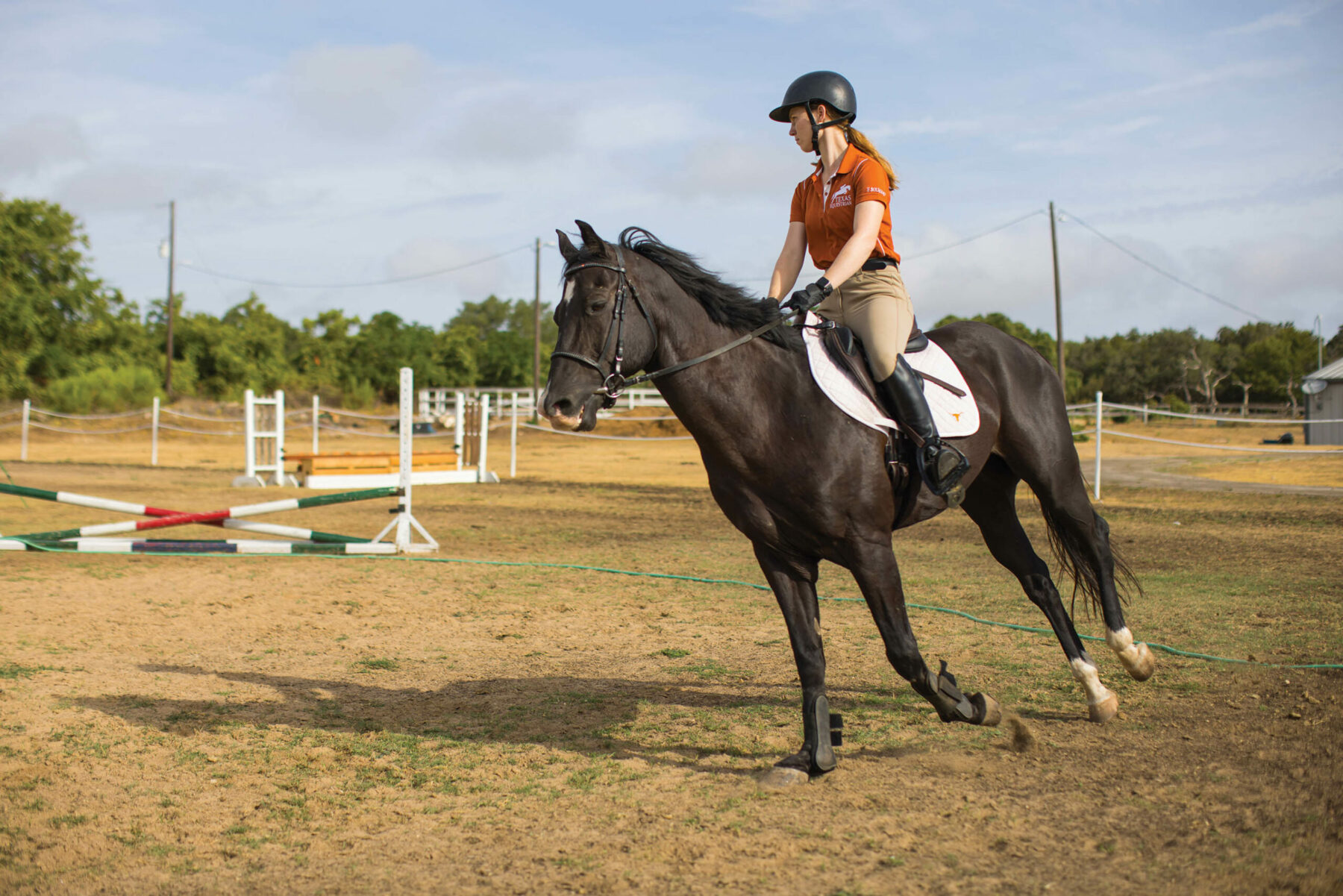
Warmack hopes the team can compete in more shows as well as recruit more riders, especially guys since Chan is the only guy currently on the team. Thayer, as the new team captain, says the team will start competing soon.
Overall, both Chan and Thayer aim to continue riding and competing throughout the rest of the college and hopefully after. The grit and determination sparked by the first ride shine in all riders, beyond just Chan and Thayer.
“People who ride are a little different,” Warmack says. “We don’t mind getting our hands dirty. We’re just a little tougher than the average person.”






